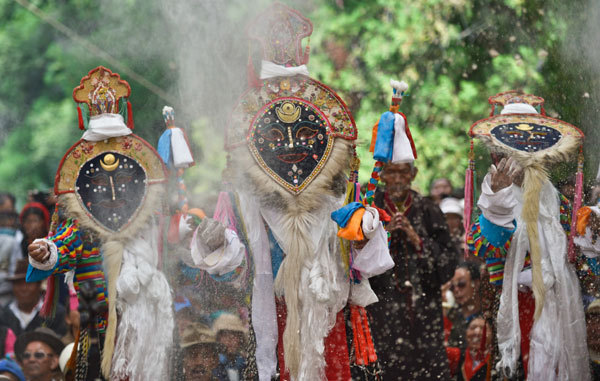 |
|
[Photo/Xinhua] |
Contrary to some Western media reports, the Tibetan culture has been well protected by China's policies, French author Maxime Vivas who is writing a new book on Tibet said during a recent interview with Xinhua.
He found a Tibet different from what has been described by the Western media after his visit to the region in 2010, and his preconceptions were radically changed by the experience.
"When I left for Tibet, I had two ideas that had been inculcated in my mind by the media that the religion was oppressed, and the Tibetan culture had been destroyed," he said.
However, "when we left the Lhasa Gonggar airport, we started to see signs in Tibetan...and then we saw traffic signs and newspapers, then we heard it on the radio and on the television," he said.
"We even visited a university where the students and professors were rather proud to show us how they created a software application in Tibetan script," he added.
In the old times, under the Dalai Lamas, only monks and aristocrats went to school, and 95 percent of the Tibetan population was illiterate, he said, but now all Tibetans go to school and know their language.
Vivas saw discrepancy between his preconceptions and what he observed upon arrival. So he began an impassioned investigation into the politics of 14th Dalai Lama, Tenzin Gyatso, and wrote a book "Not So 'Zen': The Hidden Side of The Dalai Lama," the first book of its kind published in the West.